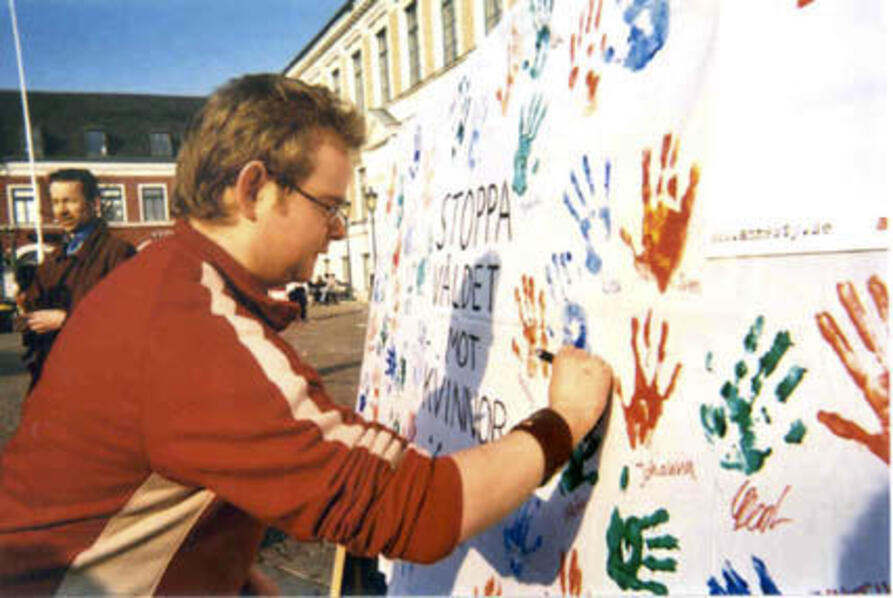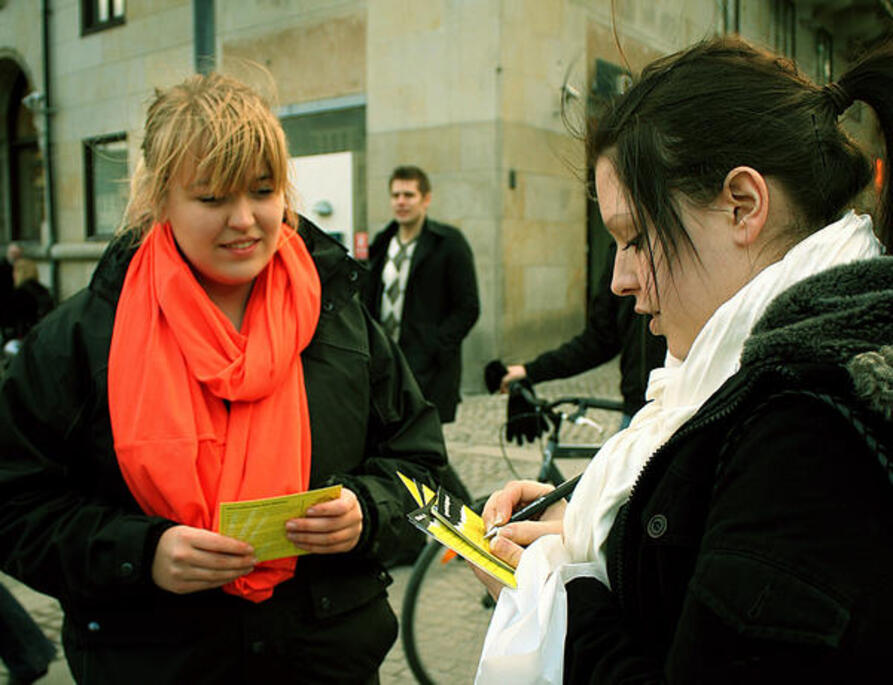Norge: Voldtatt og henlagt
Amnestys rapport viser at kvinner som utsettes for voldtekt i Norge har liten mulighet til å oppnå rettferdighet i rettssystemet.
Dette er saken
En mann som begår voldtekt i Norge blir sjelden stilt til ansvar og straffet for overgrepet.
Rapporten Case closed: Rape and Human Rights in the Nordic Countries avslører at mangelfull politietterforskning er en viktig årsak til henleggelser av voldtektssaker i alle de nordiske land. Rapporten viser videre at fordommer om kvinners seksualitet svekker kvinners troverdighet i rettssystemet, mens tilsvarende forestillinger om menns seksualitet tvert i mot styrker mannens troverdighet.
Etterforskning av voldtektssaker blir fremdeles systematisk nedprioritert og den høye henleggelsesprosenten gir saksfeltet lav status og fører til en ytterligere nedprioritering av voldtektssaker.
Det høye antall henleggelser på hvert eneste trinn i prosessen, er ikke bare et uttrykk for en omfattende kjønnsbasert diskriminering av kvinner i Norden, men også et alvorlig angrep på kvinners rett til rettslig beskyttelse og likhet for loven på linje med menn.
I mange voldtektssaker vil ord stå mot ord, og vurderingen av overgripers og offers troverdighet vil spille en avgjørende rolle for utfallet av saken. Troverdigheten påvirkes av normer og verdier både hos politiet, aktorat og i rettssalen, og forestillinger knyttet til seksualitet og ”moral” skaper myter og fordommer som er med på å prege utfallet av saken. For eksempel viser det seg at kvinner som har drukket alkohol vanskelig kan leve opp til rollen som ”ideal-offeret” i rettsprosessen.
Amnesty krever
Amnesty krever at myndighetene i Norge sikrer kvinners rett til beskyttelse mot vold ved å forebygge, etterforske og straffe seksuelle overgrep og voldtekt i henhold til nasjonale og internasjonale forpliktelser!
Hva kan du gjøre?
Du kan støtte saken ved å
- signere aksjonen
- fortelle alle du kjenner om saken
- skape oppmerksomhet om saken på nett og i media, på skolen, på jobben og/eller på gaten.
- fortelle andre hva du har gjort i kommentarfeltet
Bli med å samle underskrifter! Heng opp underskriftslisten på en felles oppslagstavle, legg listen i kantinen på jobb og skole eller ta den med på møtet i idrettslaget i kveld.
Heng opp underskriftslisten på en felles oppslagstavle, legg listen i kantinen på jobb og skole eller ta den med på møtet i idrettslaget i kveld.
OPPDATERINGER
22.06.2010
Overleverte 27.411 underskrifter til nordiske justisministre
Anmeldte voltekter som fører til fellende dom.
De fleste voldtekter i de nordiske land anmeldes aldri.
- Norge 12 prosent
- Danmark 20 prosent
- Finland 13 prosent


Justis- og politidepartementet
Postboks 8005 Dep
0030 Oslo
Women in the Nordic countries – Denmark, Finland, Norway and Sweden have achieved impressive levels of gender equality in many aspects of life. Nevertheless, rape and other forms of sexual violence remain an alarming reality that devastates the lives of thousands of women and girls every year.
Rape and other sexual crimes are a grave attack on the physical and mental integrity and sexual autonomy of the victim. These crimes are violations of human rights in themselves and they also impair the victim’s enjoyment of a range of other human rights such as the rights to physical and mental health, personal security, equality within the family and equal protection for men and women under the law.
It is duty of the states to prosecute effectively all crimes against women, including crimes of sexual violence, and ensure access to justice and redress to survivors through the criminal justice system.
As Amnesty International’s report Case Closed: Rape and human rights in the Nordic countries (2008) shows, women who report rape to the police in the Nordic countries have only a small chance of having their cases tried by a court of law due to the gaps and flaws in laws, procedures or practices, and because of the stereotyped norms for men and women’s sexual behaviour and gender bias interfering at every step of the survivor’s legal journey. The result is that many perpetrators are never held to account for their crimes.
Amnesty International calls on the governments of Norway to take the following steps to increase protection from rape and other sexual violence and ensure justice for all victims and survivors of sexual crimes:
- To adopt a legal definition of rape in the criminal law which defines rape as sexual invasion through the use of force, threat of force, or coercion of any kind, or in a situation where the agreement of the woman or girl involved is not truly and freely given. This definition should apply in all circumstances, including when victims are in a helpless state, and within marriage.
- To include all rape cases as cases for public prosecution (without requirement for the complainant to press charges) and ensure that all legal procedures are impartial and fair, and not affected by prejudices or stereotypes about female and male sexuality.
- To improve the quality of rape investigations and the judicial handling of rape cases and eliminate discriminatory attitudes towards women and gender biased practices that constitute a barrier to women’s reporting of rape.
- To establish an independent monitoring mechanism to systematically analyze all rape investigations that are closed before coming to trial, and improve the level of consistency and uniformity the investigations carried out by different police districts.
- To formulate and implement national action plans to prevent and combat rape and sexual violence, which also take on board the particular needs of girls under 18 in relation to effective prevention, prosecution and reparations for rape and other sexual violence.
- To develop and reinforce preventive work against rape and sexual violence in society at large within the context of working towards substantive gender equality between men and women in all areas of life.
Yours sincerely,
